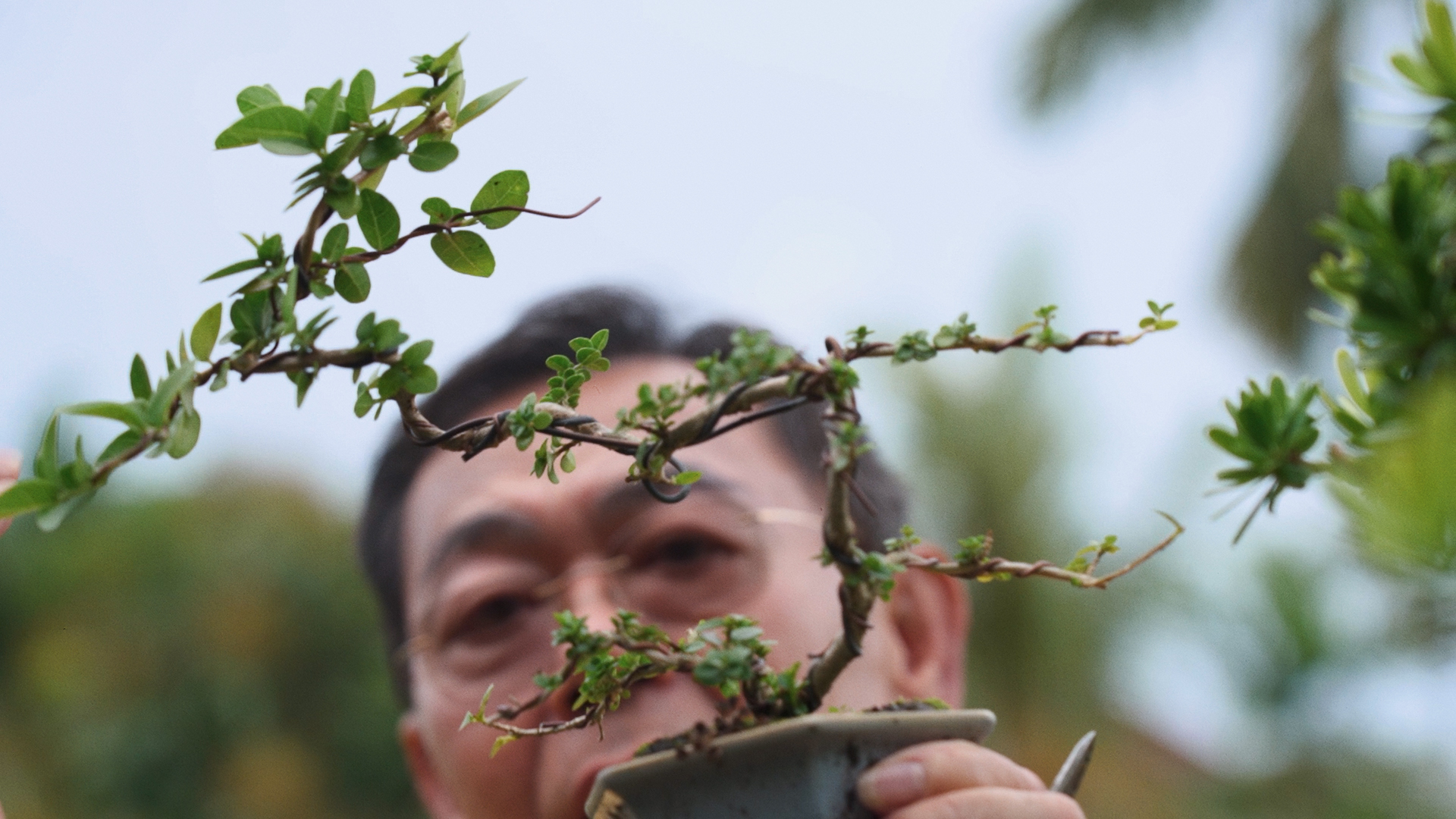This article accompanies our video interview with Mr Boh Twang Keng, Bonsai Master in celebration of Vesak Day. All images by Feline Lim unless otherwise stated.
Boh’s Bonsai is a home-cum-nursery tucked away in Lengkok Mariam. Mr Boh, Singapore’s premiere bonsai master, tends to his creations with a devotion that is rooted in Buddhist traditions. His fingers are long and nimble, his gaze is patient and discerning. “In a few years, you will be beautiful,” he says to a fledgling bonsai; with brittle bark and sparse leaves, it looks fragile and fussy to me.
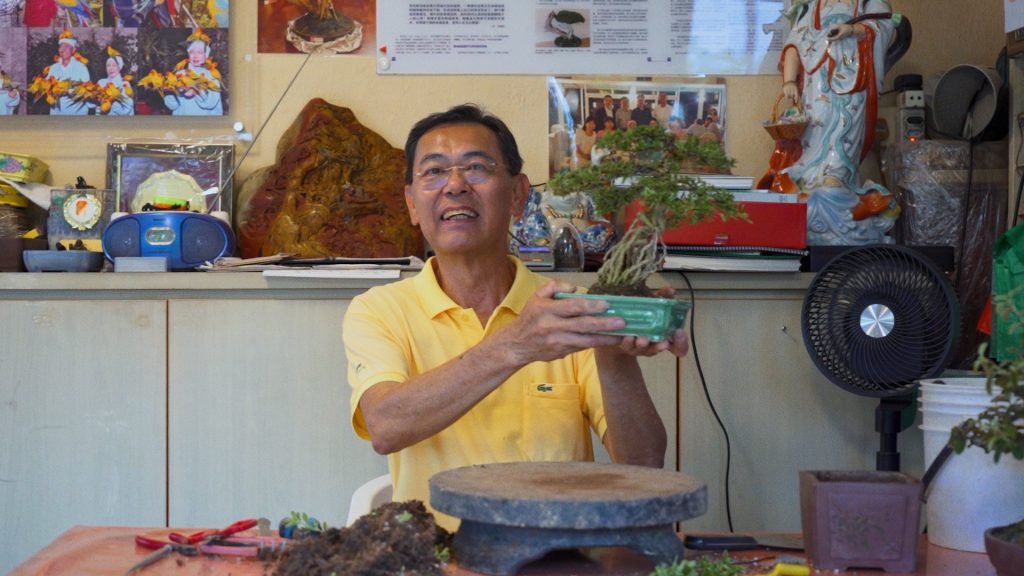
But Mr Boh is in no hurry to write off this bonsai’s struggle. “A single bonsai, seen from the perspectives of different people, can evoke a completely different response.” My assessment of this bonsai as fussy differs from Mr Boh, who views its growing pains as the source of all goodness. “Buddhism has many complex teachings, which require stringent studying to nurture a good heart.”
At Boh’s Bonsai, life is fragile. Without Mr Boh’s attentive care, the finicky bonsai’s will quickly perish. Often, they perish anyway, even under his watchful eye. His measured nurturing is sometimes futile, but that doesn’t stop Mr Boh from refining his craft or taking the time. His grounded approach to the art of bonsai reflects a central tenet of Buddhism, and a lesson for us at this point in the pandemic: the practice of heedfulness, also known as appamada in sanskrit.
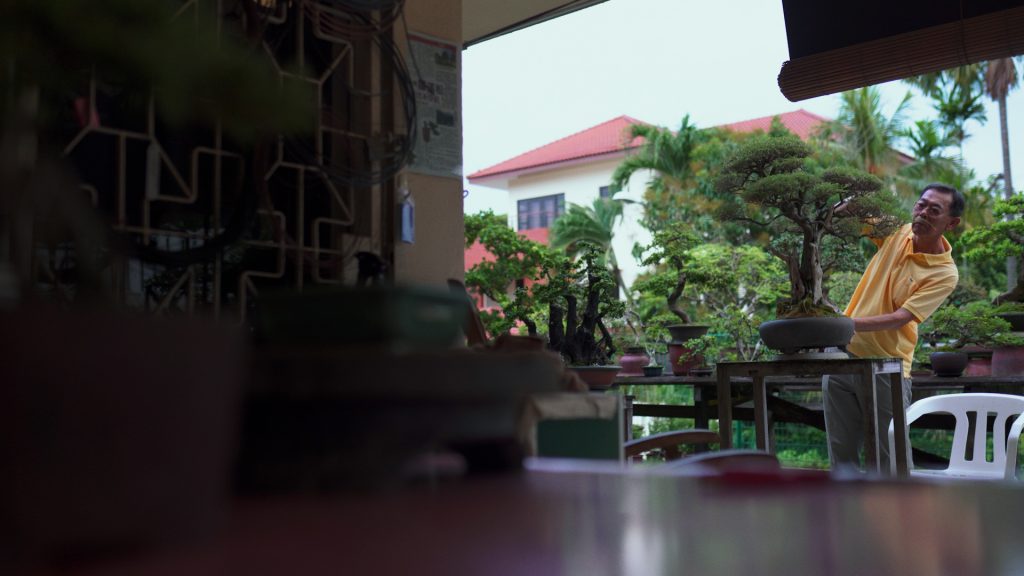
The Spirit of Vesak Day
Yesterday, Buddhist’s celebrated the birth, enlightenment and death of the Buddha. For those who aren’t familiar with the meaning of Vesak Day, here’s a brief explanation: In Singapore, the celebrations begin on the second full moon in May. Vesak Day is a reminder of the universal law that all compounded things must disintegrate.
There are a few rituals which embody this universal law: deliverance of heavenly offerings like joss sticks and fresh flowers, singing hymns, eating vegetarian food, and making special efforts to bring happiness to the unfortunate. On Vesak Day, acting mindfully and with intention is paramount.
Venerable Muhinda, a Malaysian Buddhist monk explained the intentionality of the rituals on Vesak Day as such: “When we train our minds to observe the functioning of mental and physical processes we realise the true nature of our lives. We see how it is subject to change and unsatisfactoriness.”
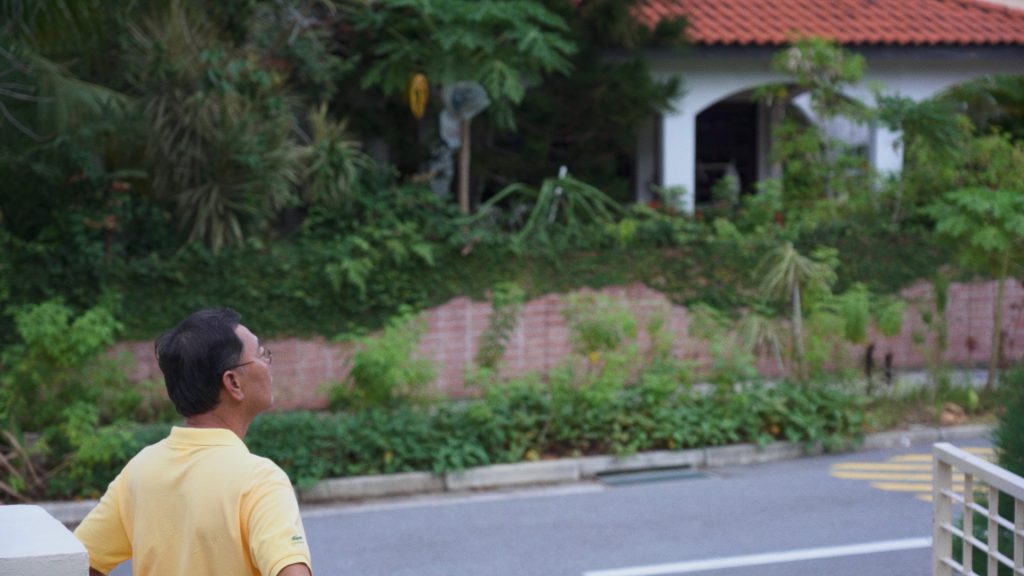
In Phase 2 (HA), Can We Benefit From Heedfulness?
As I mentioned earlier, the art of bonsai and Mr Boh’s patience with the craft is one example of the practice of heedfulness. It’s the art of paying attention, which is the antidote to complacency. Because life is fleeting, heedfulness implores one to imbue each interaction with meaning and substance, to be vigilant of the possibility in every moment.
The observation of one’s own mind is a powerful tool that transcends religion—you don’t have to become a buddhist to pay attention. If you have meditated, then you know what heedfulness feels like. Now that we’re stuck at home with idling minds, perhaps we can harness some heedfulness to muddle through.
Ṭhānissaro Bhikkhu is an American Buddhist monk, most known for his translations of religious texts. If sitting down to meditate feels overwhelming to you in this moment, he reassures us that heedfulness can be practiced even in the moments where we might not think to be mindful at all.
“We tend to kill the little bits of time. For example, waiting in the doctor’s office, sitting at a red light, or taking a break from work. There’s a lot that can be done in those little bits of time. Too often we think of the practice as what we do when our eyes are closed. But practice is practice everywhere. You’ve got the same mind, the same qualities of mind, that you want to develop, simply in different circumstances.”
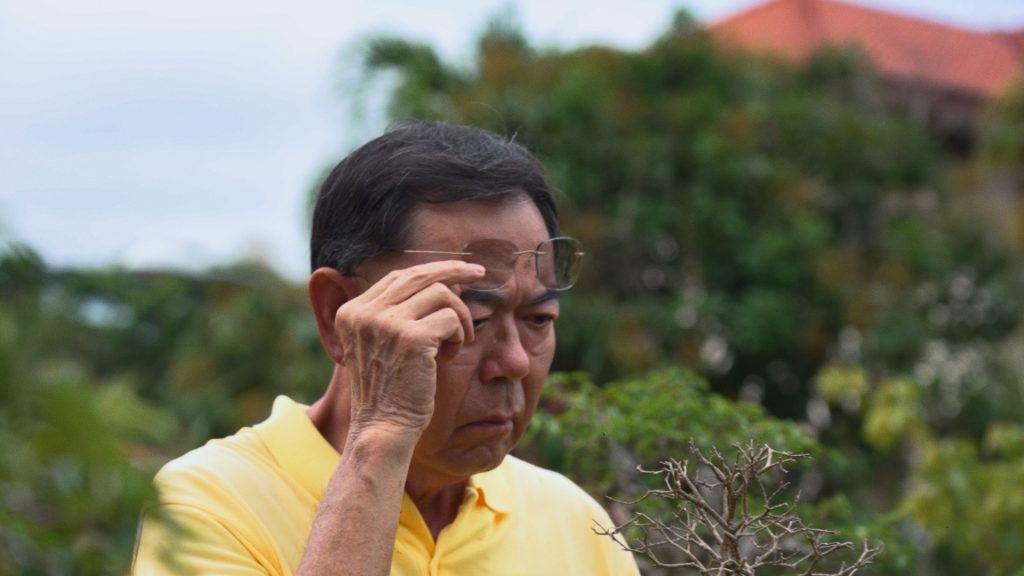
The Power of Discernment
In Buddhist teachings, intoxication is used as a metaphor to describe the trappings of the mind. According to this metaphor, desire, cravings, and anxiety are forms of intoxication which lead to suffering. Discernment is the heedful, grounding force which frees one from suffering and fuels the enlightened mind.
How can we put this into practice? In the moments at home when we’re feeling damn sian, perhaps we can bring some awareness to the detours that the mind takes in frustration and boredom. In mindfulness exercises, to calm racing thoughts, you acknowledge them first, then give permission for them to leave.
It’s impossible to have racing thoughts or feelings of boredom at Boh’s Bonsai. Mr Boh is self assured and calm. Having spent years refining his finicky craft, he has realised something that we can all benefit from even while we’re stuck at home: “I have the chance to live a quieter, slower life.”
Watch the video here.

